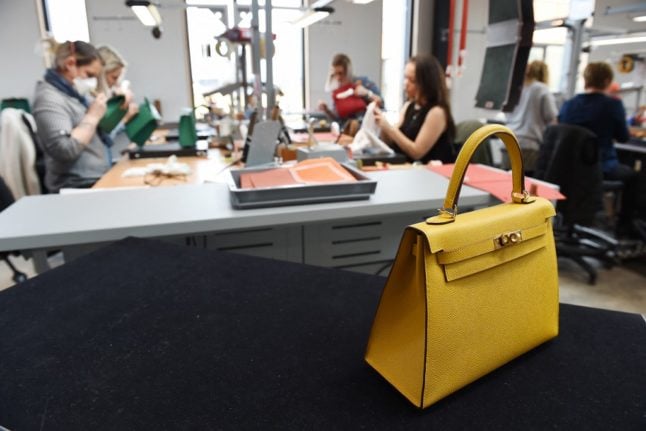Perhaps inspired by this month’s Paris Fashion Week, the non-binding recommendations from the Commission for Enrichment of the French Language were published in Wednesday’s Official Journal.
Instead of an “it-bag” — defined as “a handbag in the latest fashion or that stands for a brand” — ministries and businesses are encouraged to write “sac iconique“.
An “it-boy” or “it-girl” can now safely be described as an “icone de la mode” and a “must-have” transforms into an “incontournable“, while “try before you buy” becomes “essayer-acheter”.
There are also more baffling business terms that may be unfamiliar to many native English speakers, like “digital native vertical brand” (“marque integree nee en ligne“).
Set up in 2015, the Commission for Enrichment of the French Language aims to “provide French vocabulary appropriate to the need for communication that is clear and accessible to the greatest number of people”, it said in the introduction to its 2021 annual report.
Led by a member of the Academie Francaise — founded in 1635 under King Louis XIII to guard “pure” French — the Commission says it “recalls to a broad audience the importance of having and using French vocabulary so as to keep our language functional”.
Given the dominance of English in global business and technology, its terms are the most frequently targeted for translation into the language of Moliere.
“These days there’s no invention, innovation or discovery that doesn’t have its corresponding term, increasingly often in English,” the Commission said in its report.
“The flow of new concepts that must be defined and named in French is therefore continuous.”
The report cited fields including hydrogen power, the Covid-19 pandemic and malicious digital activities as recent areas to which its 20-odd expert groups have turned their attention.



 Please whitelist us to continue reading.
Please whitelist us to continue reading.
Member comments